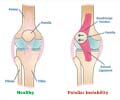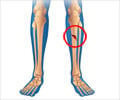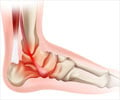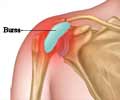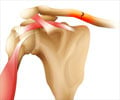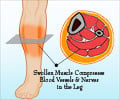- Naproxen - (https://medlineplus.gov/druginfo/meds/a681029.html )
- Naproxen - (https://www.ncbi.nlm.nih.gov/books/NBK525965/ )
- Use of non-steroidal anti-inflammatory drugs in pregnancy: impact on the fetus and newborn - (https://pubmed.ncbi.nlm.nih.gov/22299823/ )
- Effect of naproxen and acetaminophen on blood pressure lowering by ramipril, valsartan and aliskiren in hypertensive patients - (https://pubmed.ncbi.nlm.nih.gov/23883161/ )
Naproxen Medication Information
Learn everything you need to know about Naproxen-pronunciation, uses, dosage guidelines, indications, and when to take or avoid it.
Get up-to-date information on side effects, precautions, warnings, and proper storage to ensure safe usage.
Explore Naproxen brand names commonly used in India and internationally, along with detailed pricing information. Consult your healthcare provider for tailored medical advice.
Generic Name : Naproxen Pronunciation : na prox' en ICD Code : Y45.3 Therapeutic Classification : AnalgesicsBrand Names or Trade Names of Naproxen
India :
International :
Anaprox, Naprelan, Naprosyn, Aleve
Why is Naproxen Prescribed? (Indications)
This medication is a nonsteroidal anti-inflammatory drug (NSAID), prescribed for pain, fever, inflammation and stiffness due to various disease conditions. It works by reducing hormones that cause pain, fever, and inflammation.When should Naproxen not be taken? (Contraindications)
Hypersensitivity.What is the dosage of Naproxen?
Adult: PO- 0.5-1 g in 1-2 divided doses, up to 6 months if needed. Up to 1.5 g/day in patients who can tolerate lower doses.How should Naproxen be taken?
It comes as a tablet and liquid to take by mouth, with food.What are the warnings and precautions for Naproxen?
• Caution should be exercised in patients with history of high blood pressure, blood disorders, bleeding problems, heart, kidney or liver disease, diabetes, stomach or bowel problems, dehydration, any allergy, who are taking other medications, elderly, children, during pregnancy and breastfeeding.• It may cause dizziness or drowsiness, do not drive a car or operate machinery while taking this medication.
• Avoid long-term use of this medication; otherwise it may cause stomach ulcer or bleeding.
What are the side effects of Naproxen?
Body as a Whole - Allergic reactions, menstrual disorders, chills and fever.Gastrointestinal - Heartburn, abdominal pain, nausea, constipation, blood in stools, diarrhea, indigestion and mouth ulcer.
Central Nervous System - Headache, dizziness, drowsiness, lightheadedness and vertigoInability to concentrate, depression, dream abnormalities, sleeplessness, uneasiness, muscle pain, muscle weakness, mental illness, convulsions.
Skin - Itching, skin eruptions, increased sweating and bruising.
ENT - Ringing in the ear, visual disturbances and hearing disturbances.
Heart - Edema, palpitations, heart failure, high blood pressure and lung swelling.
General - Difficulty in breathing and increased thirst.
Liver - Jaundice and abnormal liver function tests.
Blood - Eosinophilia, leucopenia, blood in stools, decrease in white blood cells and platelets.
Metabolic - Decrease/increase in blood sugar.
Respiratory - Lung inflammation and asthma.
What are the other precautions for Naproxen?
Avoid excess dosage.What are the storage conditions for Naproxen?
Store it at controlled room temperature (15� to 30�C).Schedule : H
Prescription drugs - Drugs to be sold only under the prescription of a Registered Medical Practitioner.
























